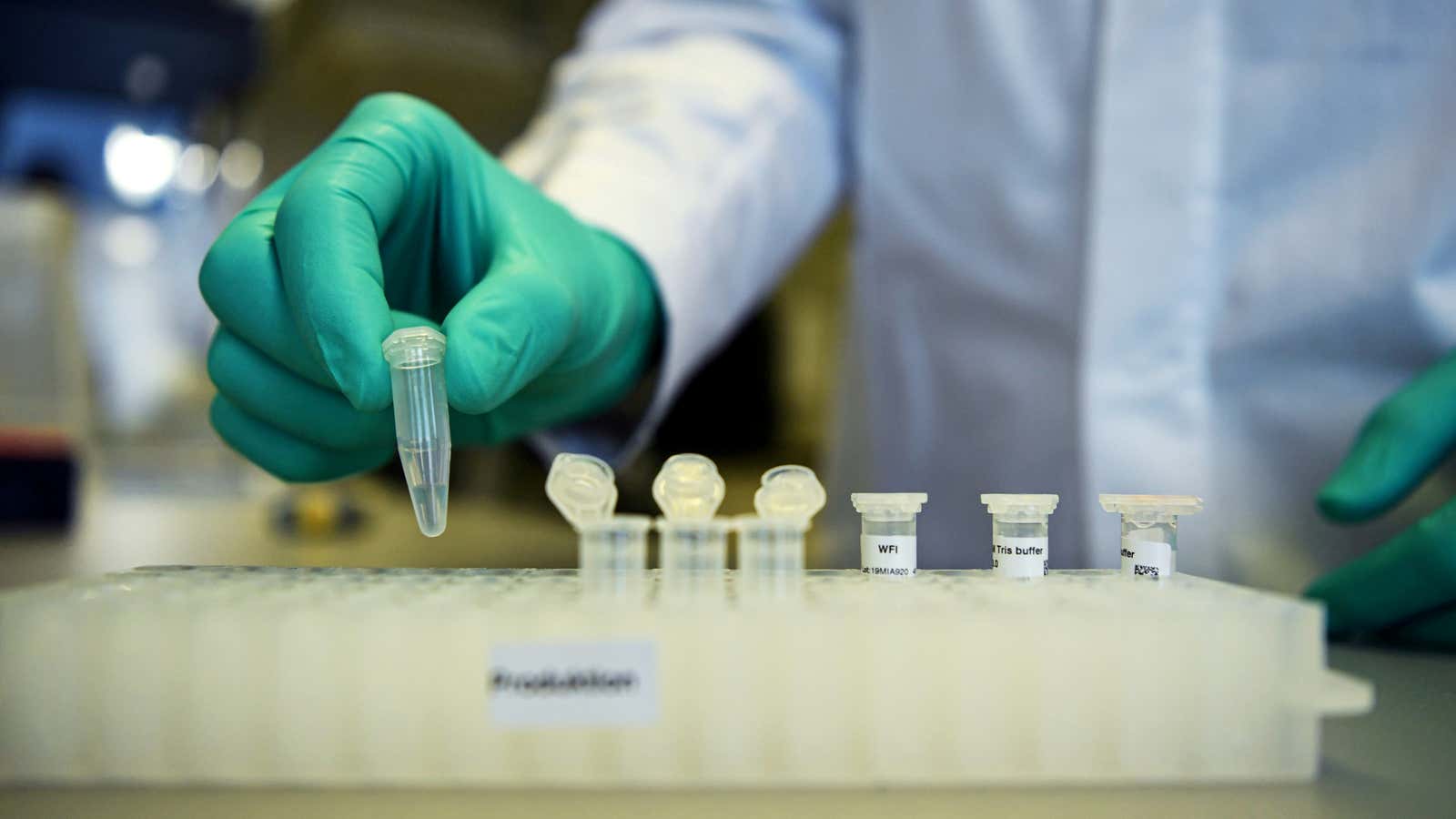The world needs more Covid vaccines. Time to make some!
Even as the struggle against vaccine hesitancy and increasingly infectious variants continues, on a global level, demand for the vaccines that provide better immunity to Covid-19 has not been met.
One solution may be found in failure: CureVac, a German company that joined the rush of firms creating inoculants in 2020 found out in June that its product is only 47% effective against the coronavirus, compared to 90% or higher in vaccines made by Pfizer or Moderna.
But CureVac still did the work to set up the kind of supply chain needed to pump out 1 billion doses by the end of 2020: Raw materials reserved, factories prepared to produce the active ingredient in the vaccine, and contractors to take the mass-produced medicine and package it into individual doses for distribution.
Let’s not let all that good logistical work go to waste. Chad Bown, an economist at the Peterson Institute for International Economics, argues that governments should work to convert this supply chain to produce an effective vaccine designed by a different company.
CureVac, a German company, would need assistance from Berlin and the European Commission to make this vision a reality; particularly to license the intellectual property behind a successful vaccine.
Both of those governments have opposed efforts to waive World Trade Organization’s intellectual property rules, which currently prevent companies around the world from producing the life-saving vaccine without an expensive license. One of the key excuses offered by policymakers opposed to this measure is that even if the formulas for vaccines were accessible, a lack of infrastructure would make it too challenging for companies to quickly produce vaccines.
CureVac’s situation—all infrastructure but no vaccine—should put pressure on German and European authorities to free up these licenses; otherwise their lack of interest in increasing vaccine production will be attributed, as critics already do, not to incapacity but to carelessness.
More broadly, the need for permanent, public vaccine infrastructure is becoming increasingly clear, as pharmaceutical companies suggest that booster shots will be required to maintain immunity. Public health experts also fear the possibility of another novel virus emerging in the years ahead. And the technology behind mRNA vaccines is also opening up the possibility of preventing diseases that plague the poor, like tuberculosis and malaria.
Yet just last week, Democrats in the US Congress cut $30 billion in pandemic preparedness funding from the infrastructure bill wending its way through Congress. Its removal is designed to placate conservative lawmakers wary of arbitrarily high numbers and suspicious of vaccines. This is a baffling choice to make when the need for improving access to vaccines now and in the future is being made clear by the still-growing number of dead victims around the world.
